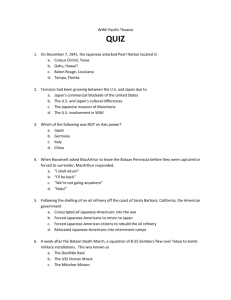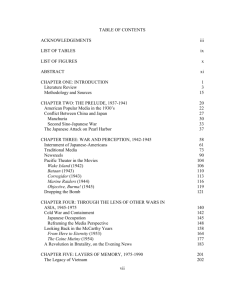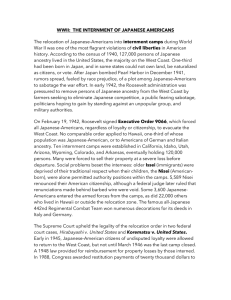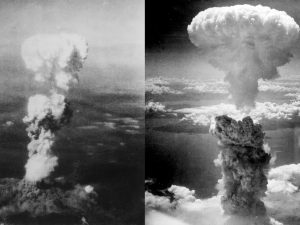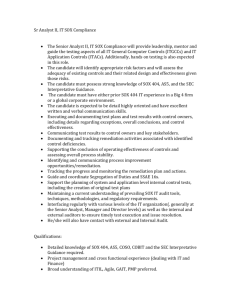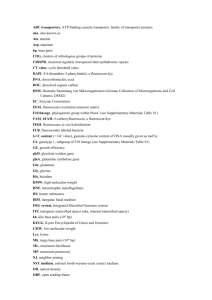Japanese-American Internment Worksheet
advertisement
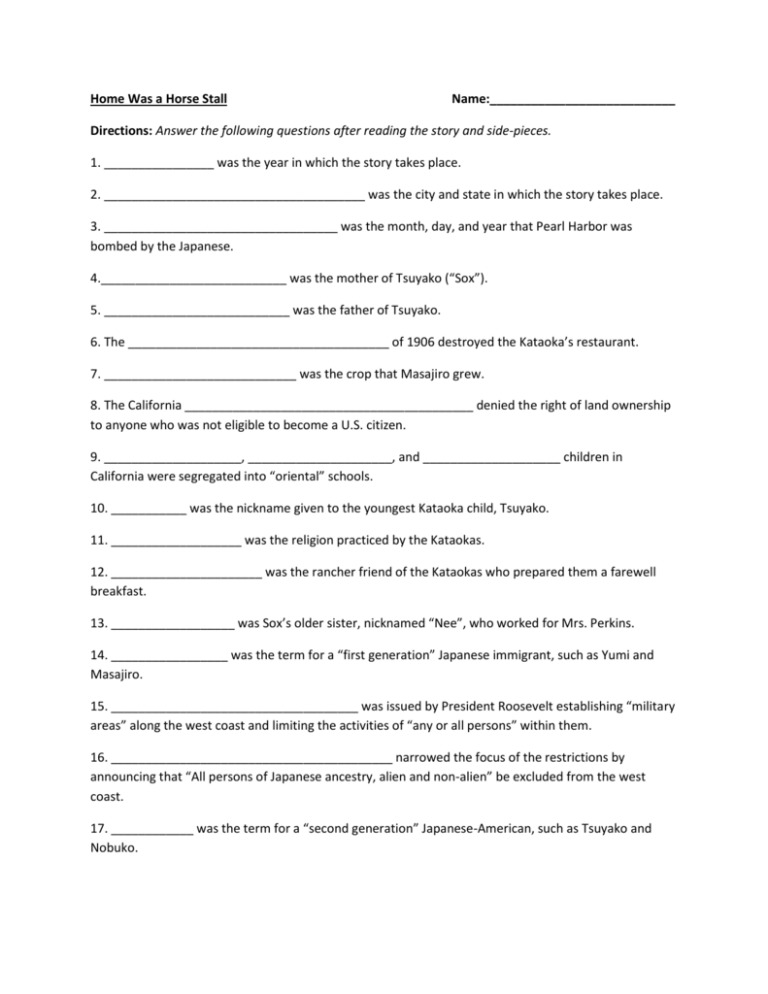
Home Was a Horse Stall Name:___________________________ Directions: Answer the following questions after reading the story and side-pieces. 1. ________________ was the year in which the story takes place. 2. ______________________________________ was the city and state in which the story takes place. 3. __________________________________ was the month, day, and year that Pearl Harbor was bombed by the Japanese. 4.___________________________ was the mother of Tsuyako (“Sox”). 5. ___________________________ was the father of Tsuyako. 6. The ______________________________________ of 1906 destroyed the Kataoka’s restaurant. 7. ____________________________ was the crop that Masajiro grew. 8. The California __________________________________________ denied the right of land ownership to anyone who was not eligible to become a U.S. citizen. 9. ____________________, _____________________, and ____________________ children in California were segregated into “oriental” schools. 10. ___________ was the nickname given to the youngest Kataoka child, Tsuyako. 11. ___________________ was the religion practiced by the Kataokas. 12. ______________________ was the rancher friend of the Kataokas who prepared them a farewell breakfast. 13. __________________ was Sox’s older sister, nicknamed “Nee”, who worked for Mrs. Perkins. 14. _________________ was the term for a “first generation” Japanese immigrant, such as Yumi and Masajiro. 15. ____________________________________ was issued by President Roosevelt establishing “military areas” along the west coast and limiting the activities of “any or all persons” within them. 16. _________________________________________ narrowed the focus of the restrictions by announcing that “All persons of Japanese ancestry, alien and non-alien” be excluded from the west coast. 17. ____________ was the term for a “second generation” Japanese-American, such as Tsuyako and Nobuko. 18. _________________ was the number of Japanese-Americans who were evacuated from the west coast and into camps. 19. ______________________________ in San Bruno, California, was the first place the Kataokas were moved. 20. _________________________________ was the city and state the Kataokas were later moved to (Barracks instead of horse stalls). 21. __________________________ were 300 Japanese-Americans who refused to pledge their loyalty and were jailed for draft resistance. 22. _____________________________ became Sox’s husband in August 1945. 23. President _____________________ revoked Executive Order 9066 and formally apologized to Japanese-Americans. 24. The ________________________________________ of 1988 gave each surviving internee $20,000 as a symbolic reparation for their hardships. 25. Senator ______________________________, in 1950, launched a notorious campaign to expose “communist plots” within the government.
